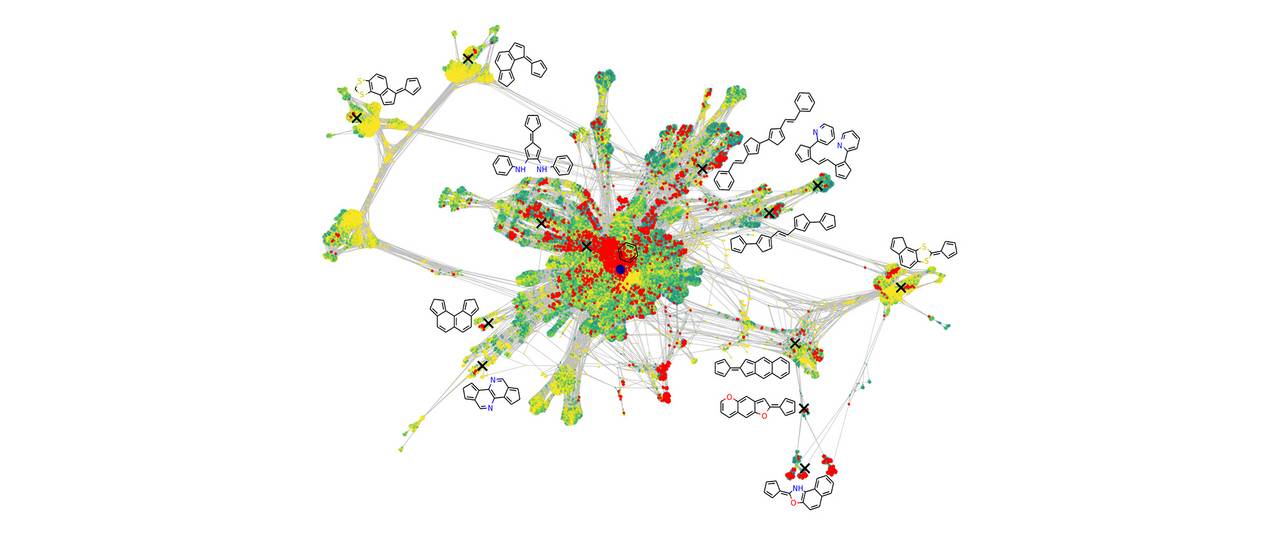
ΑΙhub.org
An active machine learning method for discovering new semiconductors

A research team from the Technical University of Munich (TUM) and the Fritz Haber Institute in Berlin is using active machine learning in the search for suitable molecular materials for new organic semiconductors, the basis for organic field effect transistors (OFETs), light-emitting diodes (OLEDs) and organic solar cells (OPVs). To efficiently deal with the myriad of possibilities for candidate molecules, machine learning proves an invaluable tool.
Molecules for portable solar cells or rollable displays
It is envisaged that organic semiconductors will enable important future technologies such as portable solar cells or rollable displays. For such applications, improved organic molecules – which make up these materials – need to be discovered. For material discovery tasks of this nature researchers are increasingly utilising machine learning methods, training on data from computer simulations or experiments.
The number of potentially possible small organic molecules is estimated to be of the order of 1033. This overwhelming number of possibilities makes it practically impossible to generate enough data to reflect such a large material diversity. In addition, many of those molecules are not even suitable for organic semiconductors. One is essentially looking for the proverbial needle in a haystack.
Active learning algorithm decides autonomously which data it needs
The team around Professor Karsten Reuter, Director of the Theory Department at the Fritz-Haber-Institute, and Dr Harald Oberhofer, Heisenberg Scholar at the Chair of Theoretical Chemistry, addressed this problem using so-called active learning. Instead of learning from existing data, the machine learning algorithm iteratively decides for itself which data it actually needs to learn about the problem.
The scientists first carry out simulations on a few smaller molecules, and obtain data related to the molecules’ electrical conductivity – a measure of their usefulness when looking at possible solar cell materials.
Based on this data, the algorithm decides if small modifications to these molecules could lead to useful properties or not. In both cases, it automatically requests new simulations, improves itself through the newly generated data, considers new molecules, and goes on to repeat this procedure.
In their work, the scientists show that this approach is significantly more efficient than alternative search algorithms and how new, promising molecules can be identified in this way while the algorithm continues its exploration into the vast molecular space.
Read the published work in full to find out more
Active discovery of organic semiconductors
Christian Kunkel, Johannes T. Margraf, Ke Chen, Harald Oberhofer and Karsten Reuter
Funding
The research was funded by the German Research Foundation (DFG) as part of the TUM International Graduate School of Science and Engineering (IGSSE) and by the Bavarian State Government as part of the Solar Technologies Go Hybrid initiative. Simulations were carried out in the Leibniz Supercomputing Centre of the Bavarian Academy of Sciences.








